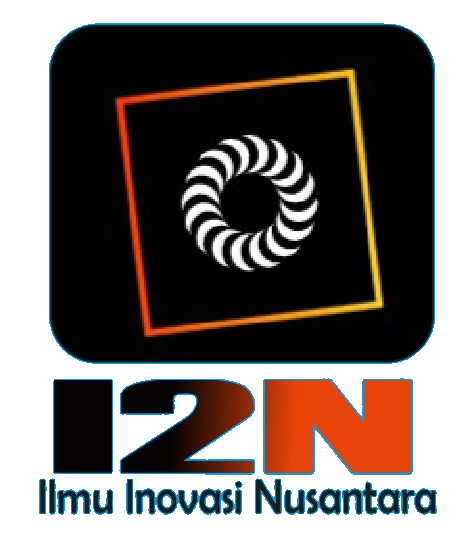Effect of compiling LEGO Play on sensory and motor skills in Toddlers
DOI:
https://doi.org/10.58557/ijeh.v1i1.2Keywords:
Keywords: Child, Toddlers, Motor skills, Creativity, Temperament, EmotionsAbstract
Toddlers have behavioral styles or temperaments that affect sensory and motor interactions. This research effectively deals with children's emotions in providing education by honing their fine and gross motor skills. The research aimed to determine the effect of composing lego on the sensory and motor skills of toddlers. The method in this research is pre-experiment with one intervention group on 10 toddlers. This study used a questionnaire and observation for 2 months given with playing techniques in the open. Of the 10 toddlers, Eight toddlers were found to have creativity in arranging legos according to their imagination, and two toddlers helped the process of compiling legos with happiness and enjoyment. Lego not only trains sensory and motor skills but helps develop toddlers' creativity
References
Andarwati, S. R., Munir, Z., & Siam, W. N. (2019). Permainan Lego (Parallel Play) terhadap Perkembangan Motorik Halus Pada Anak Usia 3–6 TAHUN Siska. Journal of Chemical Information and Modeling, 53(9), 1689–1699. https://doi.org/10.36085/jkmu.v8i1.480
Barros, M., Kitson, A., & Midgley, N. (2008). A qualitative study of the experience of parents attending a psychoanalytically informed parent-toddler group. Early Child Development and Care, 178(3), 273–288. https://doi.org/10.1080/03004430600769516
CDC. (2020). Toddlers (1-2 years old). Retrieved December 2, 2020, Retrieved from https://www.cdc.gov/ncbddd/childdevelopment/positiveparenting/toddlers.html
Colson, E. R., & Dworkin, P. H. (1997). Toddler development. Pediatrics in Review / American Academy of Pediatrics, Vol. 18, pp. 255–259. https://doi.org/10.1542/pir.18-8-255
Fatmah, F. (2020). Penggunaan Permainan Lego dalam Mengembangkan Kemampuan Sosial pada Anak Kelompok A PAUD Terpadu Negeri Pembina Banjarmasin Tengah.
Gelman, D. L. (2014). Design for Kids: Digital Products for Playing and Learning. Retrieved from https://books.google.co.id/books?hl=en&lr=&id=Eno3DwAAQBAJ&oi=fnd&pg=PP1&dq=playing+lego+with+toddler&ots=G--c_XDCw6&sig=hMLyhsee-igcEjkZMszSLZb-GYY&redir_esc=y#v=onepage&q&f=false
Green, Morris; Sullivan, Paula D; Eichberg, C. G. (2017). What to do with the baby? Dental Nursing, 13(2), 88–91. https://doi.org/10.12968/denn.2017.13.2.88
Hayati, I., Nuri, K., & Siliwangi, I. (2020). Cerdas Energik Responsif Inovatif Adaptif) Analisis Permainan Lego Dalam Mengembangkan Kemampuan Berpikir Logis Anak Usia Dini. CERIA (Cerdas Energik Responsif Inovatif Adaptif), 3(6), 2714–4107. Retrieved from https://journal.ikipsiliwangi.ac.id/index.php/ceria/article/view/5060
Hendriyani, Yeni Devita, M. (2018). Pengaruh Bermain Konstruksi (Lego) Terhadap Perkembangan Motorik Halus Anak Usia Prasekolah. Jurnal Keperawatan Priority, 1(2), 51–62. Retrieved from http://jurnal.unprimdn.ac.id/index.php/jukep/article/view/190
Hu, X., Zheng, Q., & Lee, G. T. (2018). Using Peer-Mediated LEGO® Play Intervention to Improve Social Interactions for Chinese Children with Autism in an Inclusive Setting. Journal of Autism and Developmental Disorders, 48(7), 2444–2457. https://doi.org/10.1007/s10803-018-3502-4
Larooij, J. (2018). Parental goals, parental warmth and toddler temperament in relation to toddler prosocial behavior. Retrieved from http://dspace.library.uu.nl/handle/1874/367364
Maulida, D. A., Hendrawaijaya, A. T., & Imsiyah, N. (2018). Hubungan Antara Permainan Lego Dengan Perkembangan Kognitif Anak Usia Dini di Play Group Al-Irsyad Al-Islamiyyah Jember. Jurnal Edukasi, 5(1), 9. https://doi.org/10.19184/jukasi.v5i1.8003
Mawar Santi, A. (2013). Pengaruh Penerapan Permainan Lego Terhadap Kemampuan Kognitif Anak Kelompok A Di TK Istana Balita Surabaya. PAUD Teratai, 2(2). Retrieved from https://jurnalmahasiswa.unesa.ac.id/index.php/paud-teratai/article/view/2261
Mikats, J. (2020). ‘When Mom and Dad are Working, I Build LEGO’. Children’s Perspectives on Everyday Family Life and Home in the Context of Parental Home-based Work Arrangements. https://doi.org/10.1108/s1537-466120200000027007
Mutiara, S. N. (2019). Meningkatkan Kemampuan Motorik Halus Anak Melalui Permainan Lego Block. Edukid, 13(2). https://doi.org/10.17509/edukid.v13i2.16920
Noel, A. M., & Newman, J. (2008). Mothers’ plans for children during the kindergarten hold-out year. Early Child Development and Care, 178(3), 289–303. https://doi.org/10.1080/03004430600800022
Rutanen, N., & Hännikäinen, M. (2017). Care, Upbringing and Teaching in ‘Horizontal’ Transitions in Toddler Day-Care Groups. https://doi.org/10.1007/978-981-10-2275-3_4
Tisnawati, N. R. (2020). Pengaruh Permainan Lego Terhadap Peningkatan Konsentrasi Anak Autis. In SPECIAL : Special and Inclusive Education Journal (Vol. 1). https://doi.org/10.36456/SPECIAL.VOL1.NO2.A2781
Toyib, M., Rejeki, S., & Kurniawan, F. (2016). Pelatihan Penggunaan Permainan Lego dalam Pembelajaran Pecahan. The 4th University Research Coloquium, (August), 184–191. Retrieved from https://publikasiilmiah.ums.ac.id/xmlui/bitstream/handle/11617/7693/Humanoria_22.pdf?sequence=1&isAllowed=y
Trisnawati, D. E. (2010). Efektivitas permainan Lego dalam meningkatkan kreativitas anak usia prasekolah.
Yuliana. (2016). Pemanfaatan permainan lego untuk pengembangan kecerdasan visual spasial di tk . Jurnal Pendidikan Dan Pembelajaran, 5(5), 1–15. Retrieved from https://jurnal.untan.ac.id/index.php/jpdpb/article/view/15250
Zaphiriou Woods, M., & Pretorius, I. M. (2016). Observing, playing and supporting development: Anna Freud’s toddler groups past and present. Journal of Child Psychotherapy, 42(2), 135–151. https://doi.org/10.1080/0075417X.2016.1191202
Downloads
Published
How to Cite
Issue
Section
License
Copyright (c) 2021 Eqlima Elfira, Bina Melvia Girsang, Indrawati

This work is licensed under a Creative Commons Attribution-ShareAlike 4.0 International License.














